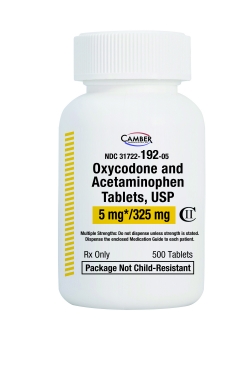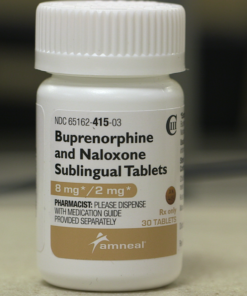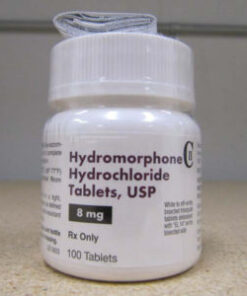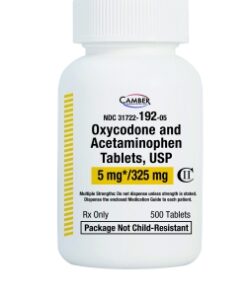Common side effects of oxycodone include constipation, nausea, vomiting, somnolence, dizziness, itching, dry mouth, and sweating. Less common side effects include loss of appetite, nervousness, abdominal pain, diarrhea, urine retention, dyspnea, and hiccups.
In high doses, or some persons not tolerant to opioids, oxycodone can cause shallow breathing, slowed heart rate, cold/clammy skin, pauses in breathing, low blood pressure, constricted pupils, circulatory collapse, respiratory arrest, and death.
Oxycodone overdose has also been described to cause spinal cord infarction in high doses and ischemic damage to the brain due to prolonged hypoxia from suppressed breathing.
The symptoms of oxycodone withdrawal, as with other opioids, may include “anxiety, panic attack, nausea, insomnia, muscle pain, muscle weakness, fevers, and other flu-like symptoms.”
Chronic use of oxycodone (particularly with higher doses) often causes concurrent hypogonadism or hormone imbalance.
Get emergency medical help if you have signs of an allergic reaction to oxycodone: hives, difficulty breathing, swelling of your face, lips, tongue, or throat.
Opioid medicine, including oxycodone, can slow or stop your breathing, and death may occur. A person caring for you should give naloxone and/or seek emergency medical attention if you have slow breathing with long pauses, blue-colored lips, or if you find it hard to wake up.
Call your doctor at once if you have:
- noisy breathing, sighing, shallow breathing, breathing that stops during sleep;
- a slow heart rate or weak pulse;
- cold, clammy skin;
- a light-headed feeling, like you might pass out;
- confusion, unusual thoughts or behavior;
- seizure (convulsions);
- low cortisol levels – nausea, vomiting, loss of appetite, dizziness, worsening tiredness or weakness; or
- high levels of serotonin in the body – agitation, hallucinations, fever, sweating, shivering, fast heart rate, muscle stiffness, twitching, loss of coordination, nausea, vomiting, diarrhea.
Serious breathing problems may be more likely in older adults and in those who are debilitated or have wasting syndrome or chronic breathing disorders.
Long-term use of opioid medication, such as oxycodone, may affect fertility (ability to have children) in men or women. It is not known whether opioid effects on fertility are permanent.buy oxycodone online
Common oxycodone side effects may include:
- drowsiness, dizziness, tiredness;
- headache;
- constipation, stomach pain, nausea, vomiting; or
- itching, red eyes, or flushing.
This is not a complete list of side effects, and others may occur.
Oxycodone may interact with other medications buy oxycodone uk online
Oxycodone oral tablet can interact with other medications, vitamins, or herbs you may be taking. An interaction is when a substance changes the way a drug works. This can be harmful or prevent the drug from working well.
To help avoid interactions, your doctor should manage all of your medications carefully. Be sure to tell your doctor about all medications, vitamins, or herbs you’re taking. To find out how this drug might interact with something else you’re taking, talk to your doctor or pharmacist.
Examples of drugs that can cause interactions with oxycodone are listed below.








